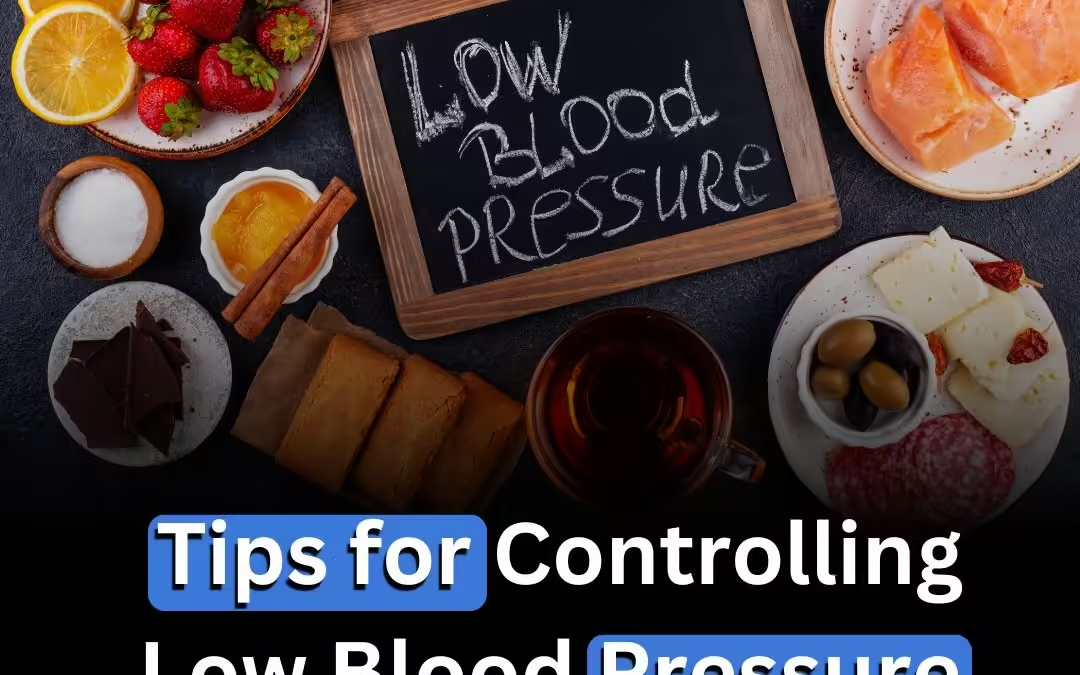Controling Low Blood Pressure , also known as hypotension, can cause symptoms such as dizziness, lightheadedness, fatigue, and fainting. If you’re experiencing persistent or severe low blood pressure, it’s important to consult with a healthcare professional to determine the underlying cause. However, here are some general tips to help manage and control low blood pressure:
Stay hydrated:
Dehydration can contribute to Controling Low Blood Pressure, so drink an adequate amount of water throughout the day. Avoid excessive alcohol consumption as it can further lower blood pressure.
Eat smaller, frequent meals:
Having smaller, more frequent meals throughout the day can help prevent a sudden drop in blood pressure that may occur after large meals.
Increase salt intake:
Sodium can help increase blood pressure and Controling Low Blood Pressure. If you’re not restricted by a medical condition, adding a moderate amount of salt to your diet or consuming salty foods can be beneficial. However, consult with your doctor or a registered dietitian before making any significant changes to your salt intake.
Wear compression stockings:
Compression stockings or socks can help improve blood circulation and prevent blood from pooling in the legs, which can aid in raising blood pressure.
Avoid sudden position changes:
When transitioning from lying down or sitting to standing, do it slowly to allow your body to adjust and prevent a sudden drop in blood pressure.
Exercise regularly:
Regular physical activity helps improve cardiovascular health and can help regulate blood pressure. Engage in moderate aerobic exercises like walking, swimming, or cycling. However, if you have significant health concerns or are unsure about exercising, consult your doctor before starting an exercise program.
Elevate your legs:
If you experience symptoms of low blood pressure, elevating your legs above the level of your heart can help improve blood flow to the brain and alleviate some symptoms.
Avoid hot environments:
Prolonged exposure to hot environments, such as saunas or hot baths, can cause blood vessels to dilate and lower blood pressure further.
Limit caffeine:
While caffeine can temporarily raise blood pressure, excessive consumption can lead to dehydration and contribute to low blood pressure. Moderation is key.
Manage stress:
Chronic stress can affect blood pressure. Explore stress-management techniques such as deep breathing exercises, meditation, yoga, or engaging in hobbies and activities that help you relax.
Avoid standing for long periods:
Standing still for extended periods can cause blood to pool in the legs and lead to a drop in blood pressure. If you need to stand for a long time, try to shift your weight or take short walking breaks.
Avoid hot showers:
Hot showers can cause blood vessels to dilate and lead to a drop in blood pressure. Opt for lukewarm showers instead.
Be cautious with medications:
Some medications, such as certain types of antihypertensives or diuretics, can lower blood pressure. If you suspect your medication is contributing to low blood pressure, consult your doctor to discuss potential adjustments or alternatives.
Raise the head of your bed:
When sleeping, elevate the head of your bed by a few inches to promote blood flow and prevent blood from pooling in the lower extremities.
Wear loose clothing:
Tight clothing around the waist or legs can restrict blood flow, so opt for loose-fitting garments that don’t constrict circulation.
Avoid alcohol:
Alcohol can lower blood pressure, so it’s advisable to limit or avoid alcohol consumption, especially if you’re prone to low blood pressure.
Consider dietary changes:
Some individuals find that increasing their intake of foods rich in vitamin B-12, such as fish, meat, and dairy products, can help regulate blood pressure.Prior to making any substantial dietary changes, it is imperative to consult with a qualified healthcare professional for personalized guidance and recommendations
Get up slowly in the morning:
When waking up, take your time to sit on the bed for a few minutes before standing up. This allows your body to adjust and helps prevent a sudden drop in blood pressure.
Follow your doctor’s advice:
If you have a diagnosed medical condition that contributes to low blood pressure, such as orthostatic hypotension or autonomic disorders, follow your doctor’s recommendations and treatment plan diligently.
Remember, it’s important to work closely with a healthcare professional to identify the underlying cause of your low blood pressure and receive appropriate medical guidance.


